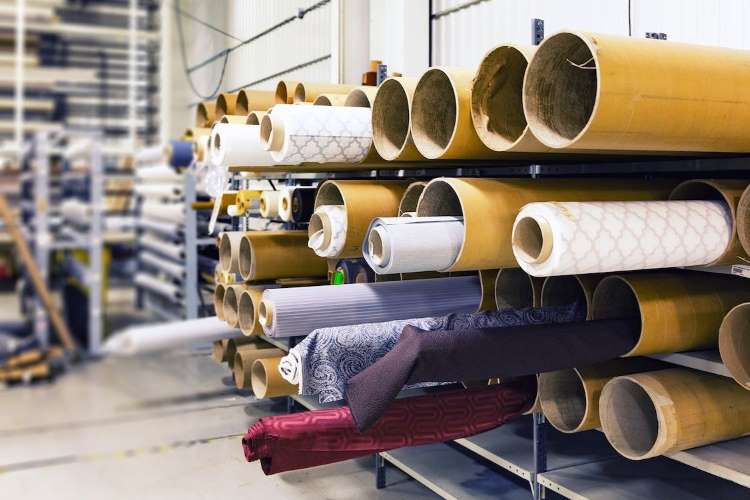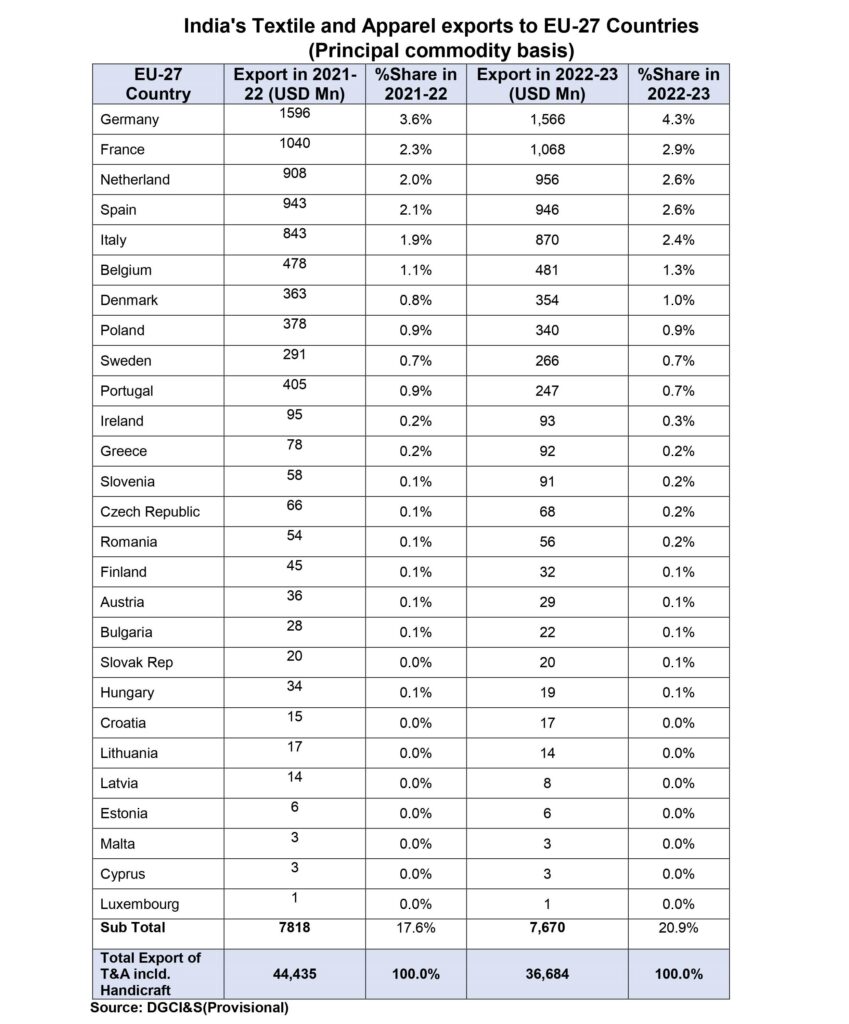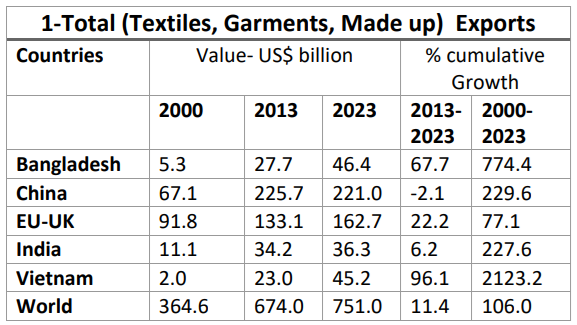
Indian textile industry and CSDDD: The Corporate Sustainability Due Diligence Directive, introduced by the European Commission in February 2022, is meant to promote sustainable and socially responsible practices among companies. The CSDDD requires companies to identify, prevent, end, or mitigate adverse impacts on human rights and the environment, including those caused by their partners. These impacts range from child labour and slavery to pollution, environmental degradation, and biodiversity loss. Expected to come into force by mid-2024, the directive mandates rigorous due diligence across supply chains, with a strong emphasis on environmental and human rights concerns in various sectors, including textiles and clothing.
The CSDDD targets three main groups: large EU companies with over 500 employees and a global turnover exceeding EUR 150 million; EU companies in high-risk sectors (such as textiles and clothing) with over 250 employees and a turnover exceeding EUR 40 million; and non-EU companies which will come under the directive’s scope three years after its enactment if they generate revenue exceeding EUR 150 million in the EU.
While small and medium enterprises (MSMEs) may initially appear exempt, they could face indirect consequences through their dealings with larger companies due to mandatory supply chain due diligence. Compliance requires investment in due diligence systems, obtaining contractual assurances, and supporting MSMEs in their supply chains. Terminating business relationships becomes necessary if partners cause unavoidable negative environmental or human rights impacts. As the directive’s implementation nears, businesses must prepare to navigate its implications for corporate accountability and trade dynamics.
READ I Textile industry: Synthetics, fast fashion can help India reclaim lost glory
India’s textiles and clothing industry
India’s textiles and clothing industry, a key pillar of the nation’s economy, contributes 5% to the GDP and directly employs 45 million people, with an additional 100 million in allied sectors. As the third-largest global exporter, it boasts extensive raw material and manufacturing capabilities, with textiles, clothing, and handicrafts accounting for 10.5% of total exports in 2021-22. The EU is a significant market for India, with Germany, France, and Spain notably contributing to India’s global textile, apparel, and handicraft exports.

However, environmental trade barriers, often imposed by Western nations like the EU, pose persistent challenges. These barriers, highlighted in a CUTS International study, have affected the industry’s growth and international competitiveness. Despite high demand from the West, Indian manufacturers struggle to meet various environmental standards, hindered by the sector’s fragmentation and a lack of information and technical support.
The textile industry has faced export declines due to the pandemic and geopolitical tensions. Yet, India’s textiles and clothing exports remain resilient, with cotton-based T-shirts dominating EU exports. The introduction of the European Union’s Carbon Border Adjustment Mechanism (CBAM) and the CSDDD could, however, create turbulence. Although CBAM initially targets carbon-intensive sectors, it may soon expand to include textiles, aiming to address emissions from imported goods, which constitute 20% of the EU’s carbon dioxide emissions. These regulatory measures not only threaten Indian export competitiveness but also highlight the limited understanding by Western countries of the socio-economic challenges faced by developing nations.
Sustainability of textile industry
The textile industry’s evolution reflects a mix of tradition and modernisation, economic growth, and environmental responsibility. However, this success comes with environmental costs, such as excessive water use, chemical runoff, and CO2 emissions. Despite these challenges, innovative mitigation techniques demonstrate a commitment to environmental stewardship.
The EU’s CSDDD marks a shift towards global supply chain transparency and environmental responsibility. Adapting to compliance may increase costs and challenge the integration of local suppliers into sustainable practices. Larger companies may face the brunt of compliance, affecting relationships with SMEs critical to their supply chains. Challenges include resource scarcity, compliance costs, and monitoring complexities, requiring industry-wide collaboration and strategic planning. The fragmented nature of the Indian textile sector complicates cooperation among suppliers, as seen in past interventions like the UNEP ecolabeling project.

The CSDDD poses significant challenges, particularly impacting small suppliers lacking the resources or technical capabilities for independent compliance. Globally, there’s consensus on the need for development approaches that prioritise environmental sustainability and human well-being. Such transformations must be fair and inclusive, considering the unique development goals of countries in the Global South.
Businesses, regardless of size, should be accountable for unsustainable practices, with sustainability concerns increasingly influencing trade policies. Addressing these challenges is crucial for any sector, including T&C, to maintain relevance and resilience in the global market. The CSDDD’s environmental focus aligns with India’s initiatives, enhancing industry resilience and competitiveness.
Moreover, it’s essential for the developed world to reconsider its approach, allowing developing economies to participate in finding suitable solutions, with technical and financial support from developed countries. This ensures the continued participation of small companies in the value chain. Failure to do so could lead to policy decisions that negatively affect global production and trade, especially harming the Global South.
(Sankalan Dey and Sovini Mondal work as Research Associates at CUTS International, a global public policy research and advocacy group.)
